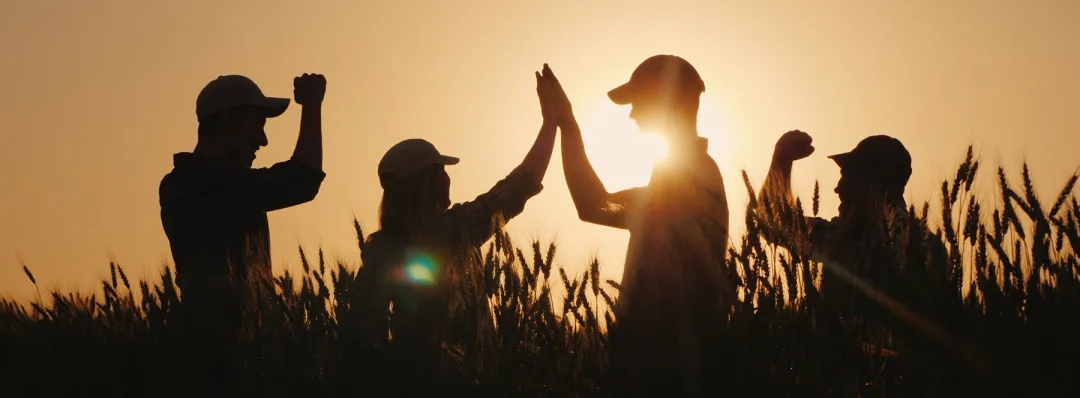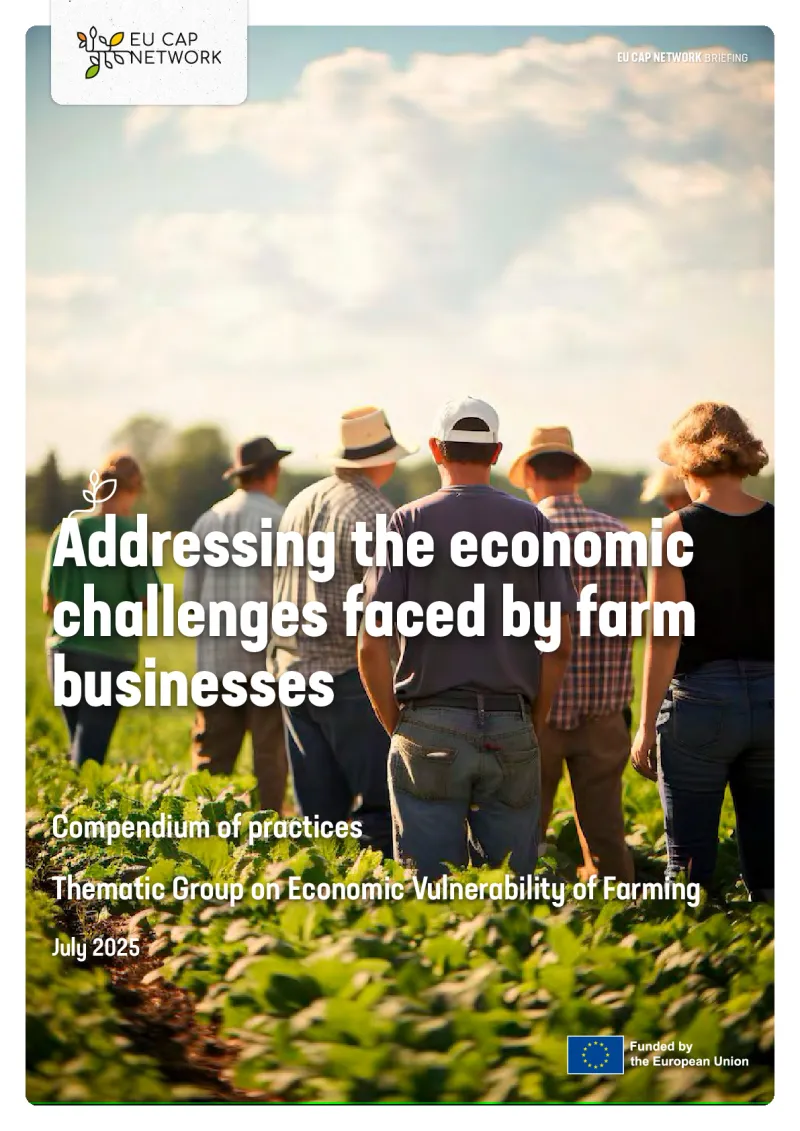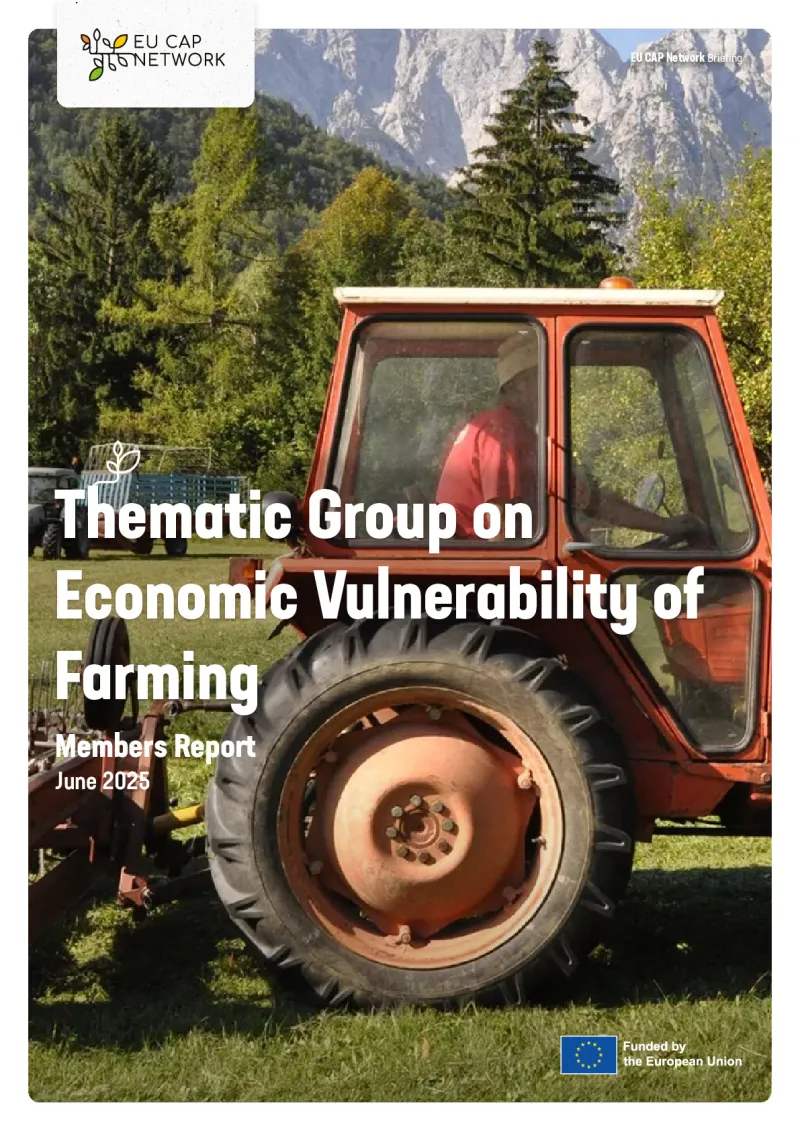Thematic Group on Unlocking the Potential of Cooperation
This Thematic Group (TG) will consider how best to unlock the potential of cooperation in the CAP to increase business competitiveness, resilience and growth, particularly for small farmers. The TG will also reflect on the effectiveness of current CAP interventions/frameworks for supporting cooperation.

EU agriculture continues to face significant economic, environmental and social challenges; such challenges are particularly acute for smaller farms, new/young farmers and farmers in economically disadvantaged or geographically challenging regions. Such farm-based businesses are often constrained by limited economies of scale, reduced access to finance and technology, innovation, access to vocational training to develop the right set of skills and a higher dependency on subsidies, making them particularly vulnerable to economic and environmental or climate related shocks.
Establishing cooperation between farmers will enable them to: gain market insights and improve decision-making with their peers; share knowledge, pool resources such as access to new technology, information and training; improve their access to risk management tools; and ultimately help their businesses to be competitive and resilient with reduced risks and increased profitability. Cooperation also allows farmers to benefit from CAP funds and privileges enshrined in the Common Market Organisation (CMO) regulation. Fundamentally, farmers need to be aware of the benefits of sharing resources and working together, as well as having the capacity to engage with other businesses in a model of cooperation that suits them.
The CAP Strategic Plans have the potential to support any form of cooperation actions deemed necessary to achieve the specific objectives of the CAP. Such actions may involve (but are not limited to): participation in quality schemes for agri-food products; setting-up of producer groups, producer organisations, Inter Branch Organisations, collective environmental and climate action; short supply chains and local markets; pilot projects; operational group projects (European Innovation Partnership), smart villages, buyers’ clubs, machinery rings; farm partnerships; forest management plans; networks and clusters; social farming; community supported agriculture; and actions within the scope of LEADER.
The key question is understanding how Member States are currently promoting or could better foster cooperation among farmers to support business incomes and business resilience across the different interventions, particularly beyond EIP & LEADER.
What are the preconditions enabling the establishment of partnerships (e.g. trust, cooperative culture, capacity building, collective risks etc)? What are the needs of small farmers (e.g. advisory services, support to prepare such a collective action etc.)? What are the success factors? What are the barriers? Are there inspiring initiatives outside the CAP that could inform approaches within the CAP?
Objectives
Within the context of the current CAP and its aim to ensure the long-term viability and resilience of the EU agricultural sector, the TG's objectives are to:
- Explore the success factors for unlocking the potential of cooperation in the CAP to increase business competitiveness, resilience and growth, particularly for small farmers.
- Consider how farm-based businesses are capitalising on the possibilities to overcome the challenges they face through co-operation.
- Reflect on the effectiveness of current CAP interventions/frameworks for supporting cooperation, consider how such approaches are implemented, how they can be enhanced, or new ones developed.
The TG consists of a small (around 40) but dedicated cross-section of informed and engaged stakeholders, including farm-based businesses, smaller farmers, farmers in disadvantaged areas, farm advisers, Managing Authorities, Paying Agencies, National Networks, and researchers, along with other relevant stakeholders. Participants commit to engaging in two meetings and related activities, ensuring diverse perspectives and active contributions to achieving the TG's objectives.
- The first meeting will take place online on Thursday, 25 September 2025.
- The second meeting will take place in person on Thursday, 11 December 2025.
If you have any questions, please contact us at thematicgroup2@eucapnetwork.eu.
To follow the work of this Thematic Group, please visit this page regularly, subscribe to our monthly newsletter, and follow us on social media (#Cooperation).
If you have any questions, please contact us at thematicgroup2@eucapnetwork.eu.


